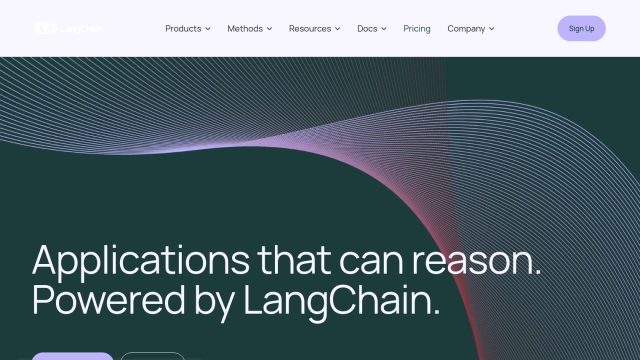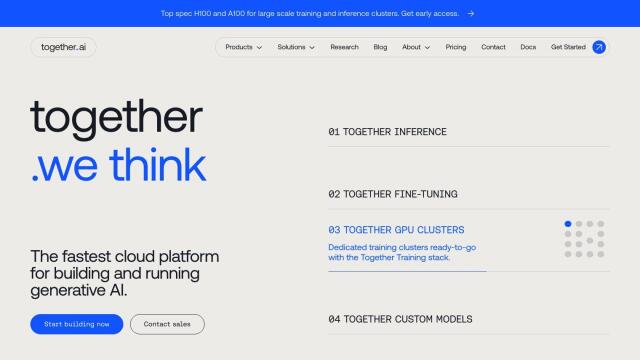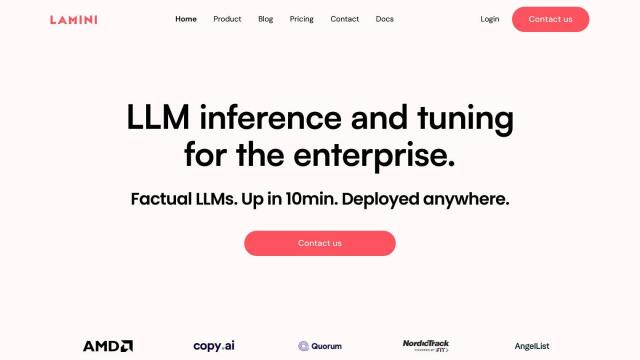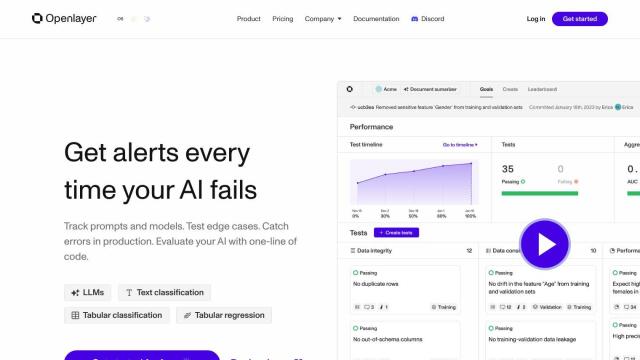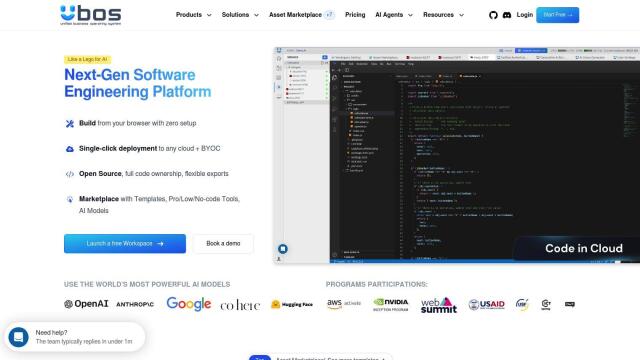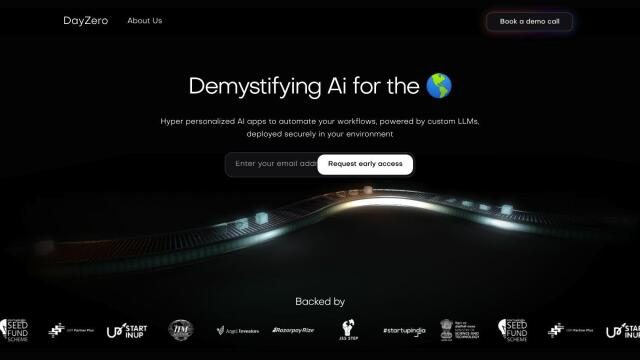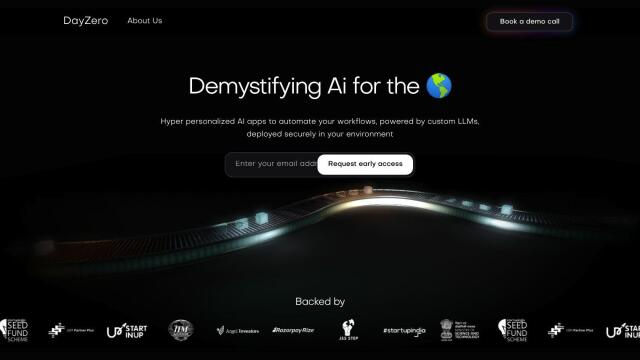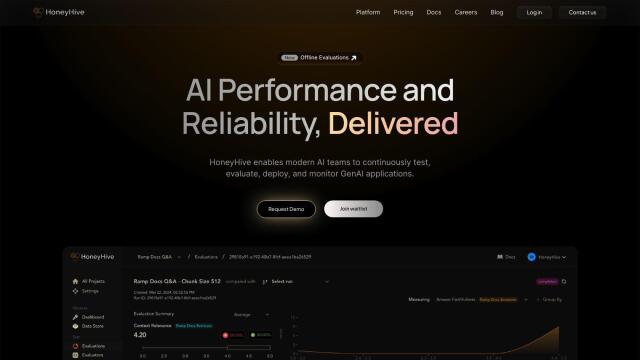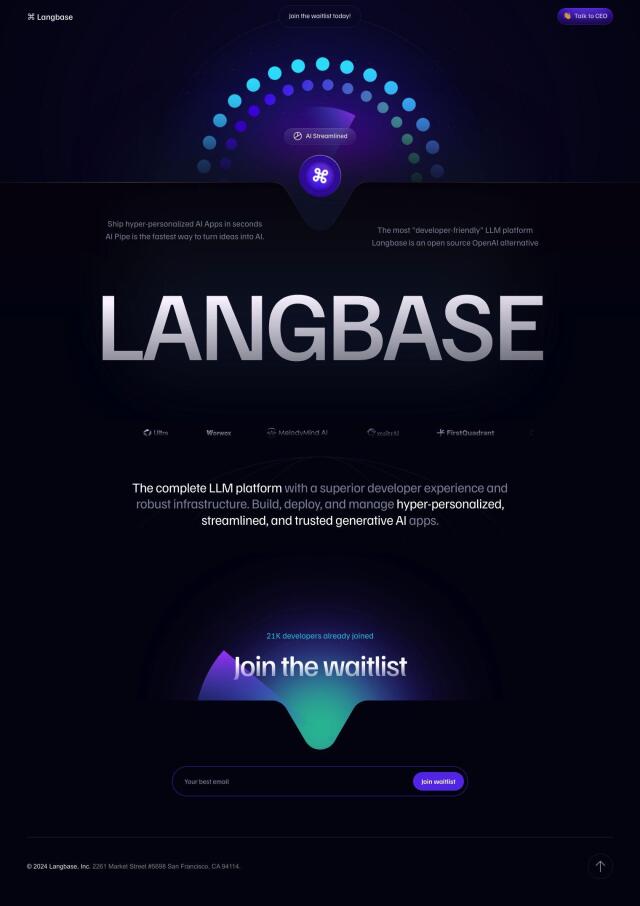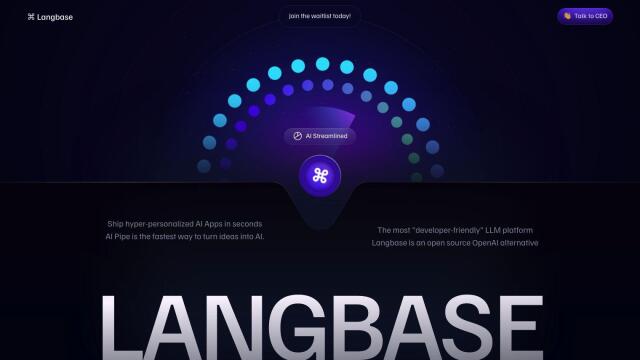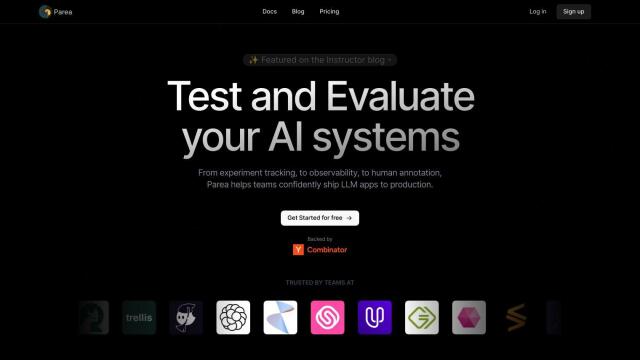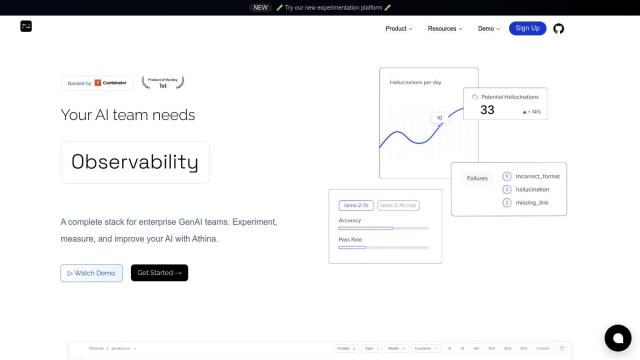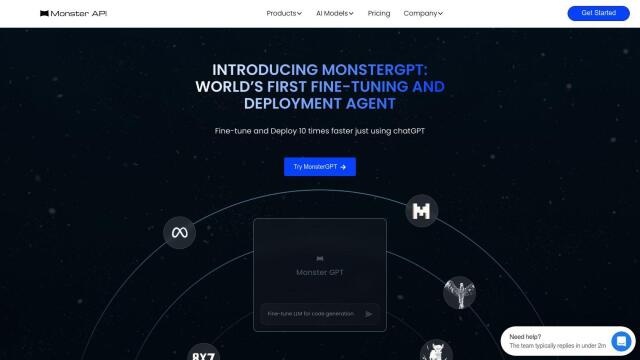Question: I'm looking for a platform that helps build and deploy large language model applications quickly and efficiently.

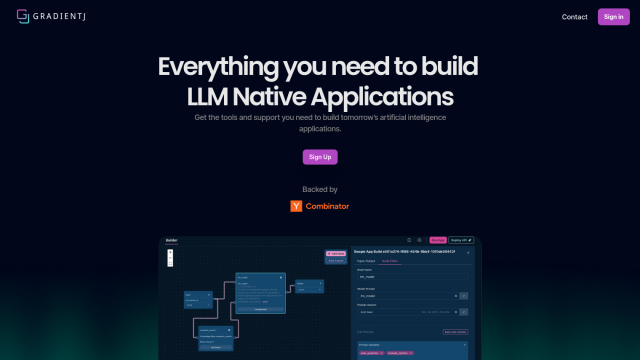
GradientJ
For rapid development and deployment of large language model applications, GradientJ is a good all-in-one option. It's a single environment for conceiving, building and managing LLM-native applications. GradientJ's app-building canvas learns from users to speed up the creation of complex apps, and it has a team collaboration feature for managing configuration changes after deployment. The platform can be used for a variety of use cases, including smart data extraction and safe chatbots, and is good for shortening engineering time and encouraging teamwork.


Humanloop
Another good option is Humanloop, which helps developers overcome common problems like suboptimal workflows and bad collaboration. It's a sandbox where developers, product managers and domain experts can build and iterate on AI features. Humanloop has tools for prompt management, evaluation and model optimization, as well as SDKs for easy integration and support for common LLM providers. It's good for improving productivity and collaboration in product teams and developers.


Abacus.AI
Abacus.AI is another strong contender, letting developers build and run large language model applications at large scale. It has a range of features, including ChatLLM for end-to-end AI systems, AI agents for more complex workflow automation, and a range of predictive and analytical tools. The platform is designed for high availability, governance and compliance, so it's a good option for enterprise use. It's good for automation, real-time forecasting and anomaly detection, among other advanced AI tasks.


Anyscale
Last, Anyscale is worth a look for its ability to develop, deploy and scale AI applications efficiently. Built on the open-source Ray framework, Anyscale supports a variety of AI models, including LLMs, and has tools to optimize resource use and streamline workflows. It has native integrations with popular IDEs and security features like user management and billing controls, making it a good option for large-scale AI use.





